Introduction To Garlic: A Brief Overview
Garlic is a vegetable that has been used for centuries as a spice and a medicinal herb. It is part of the Allium family, which also includes onions, leeks, and shallots. Garlic has a distinctive flavor and aroma that enhances the taste of many dishes, making it a popular ingredient in cuisines all around the world.
Garlic is rich in nutrients and contains vitamins, minerals, and antioxidants. It is low in calories and high in fiber, which makes it a healthy addition to any diet. It is also known for its medicinal properties, and many studies have shown that garlic can help boost the immune system, lower blood pressure, and even fight against cancer cells.
To consume garlic, it can be eaten raw, cooked, or in supplement form. Raw garlic has a more pungent flavor and is more potent than cooked garlic. It can be added to salads, soups, and sauces, or it can be crushed and mixed with honey or lemon juice for a natural remedy against colds and flu. Cooked garlic can be used in many different recipes to enhance the flavor of dishes. Garlic supplements are also available in the form of capsules and tablets.
- The nutritional value of garlic can be summarized as follows:
- Garlic is low in calories and high in fiber
- It contains vitamins C, B6, and minerals like selenium and manganese
- Garlic is a good source of antioxidants, which can help protect against oxidative damage
In conclusion, garlic is a versatile vegetable with many health benefits. Whether consumed raw or cooked, it adds a distinctive flavor to dishes and has been used for centuries as a medicinal herb. Its nutritional value and medicinal properties make it a valuable addition to any healthy diet. However, individuals who are taking blood thinners or have certain medical conditions should consult with their healthcare provider before consuming garlic supplements.
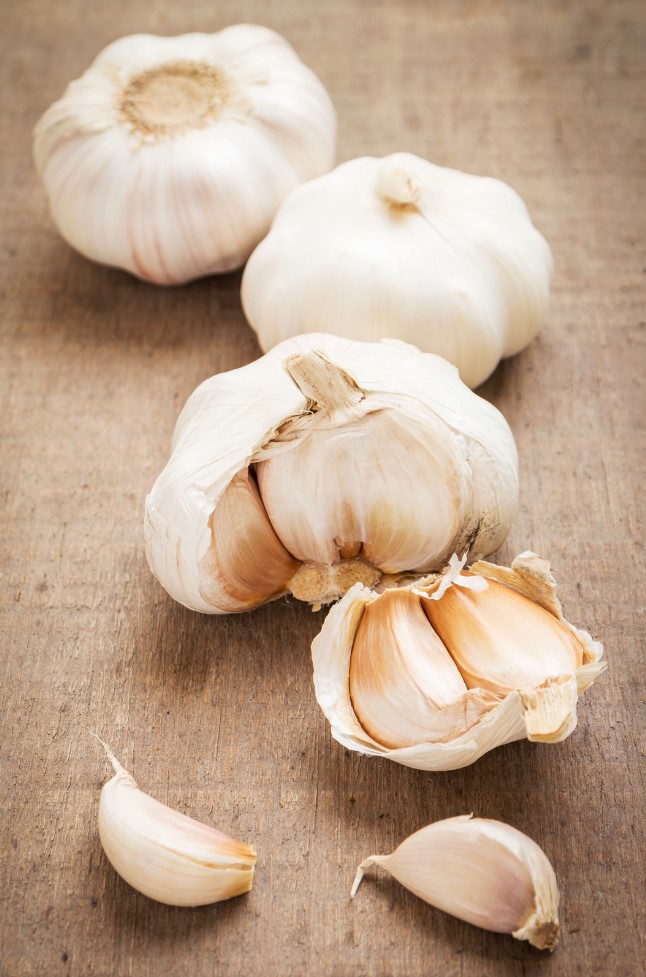
Nutritional Value Of Garlic: Rich İn Essential Nutrients
Garlic has been an essential ingredient in cooking for centuries. Not only is it a flavor enhancer, but it also has numerous health benefits. One of the most significant benefits of garlic is its nutritional value.
Nutritional Value: Garlic is rich in several essential nutrients such as vitamins and minerals. One clove of garlic contains approximately 14% daily recommended value (DRV) of vitamin C, 2% DRV of calcium, 1% DRV of iron, and 6% DRV of vitamin B6. Additionally, garlic is a good source of fiber, protein, and manganese.
- Fiber: Garlic contains both soluble and insoluble fiber that can aid in healthy bowel movements.
- Protein: Garlic is a surprising source of plant-based protein, with approximately 1 gram per clove.
- Manganese: Garlic is rich in manganese, which is important for bone health, blood sugar control, and wound healing.
Moreover, garlic also contains antioxidants that can help protect the body against damaging free radicals. Antioxidants such as selenium and vitamin C can neutralize harmful compounds in the body that may lead to chronic diseases like cancer and heart diseases.
Incorporating Garlic Into Your Diet: There are many ways to add garlic to your daily diet. You can chop garlic cloves and use them in soups, stews, stir-fries, and pasta dishes. You can also roast whole heads of garlic and use the soft, caramelized cloves in spreads, dips, and as a topping for bread. Another simple and delicious way to eat garlic is to sauté minced garlic in olive oil and add it to steamed vegetables or roasted meat.
Conclusion: Garlic is more than just a tasty addition to your meals. It is a nutrient-dense food that can benefit your overall health and wellbeing. Incorporating garlic into your diet is an easy and delicious way to get the essential nutrients that your body needs.
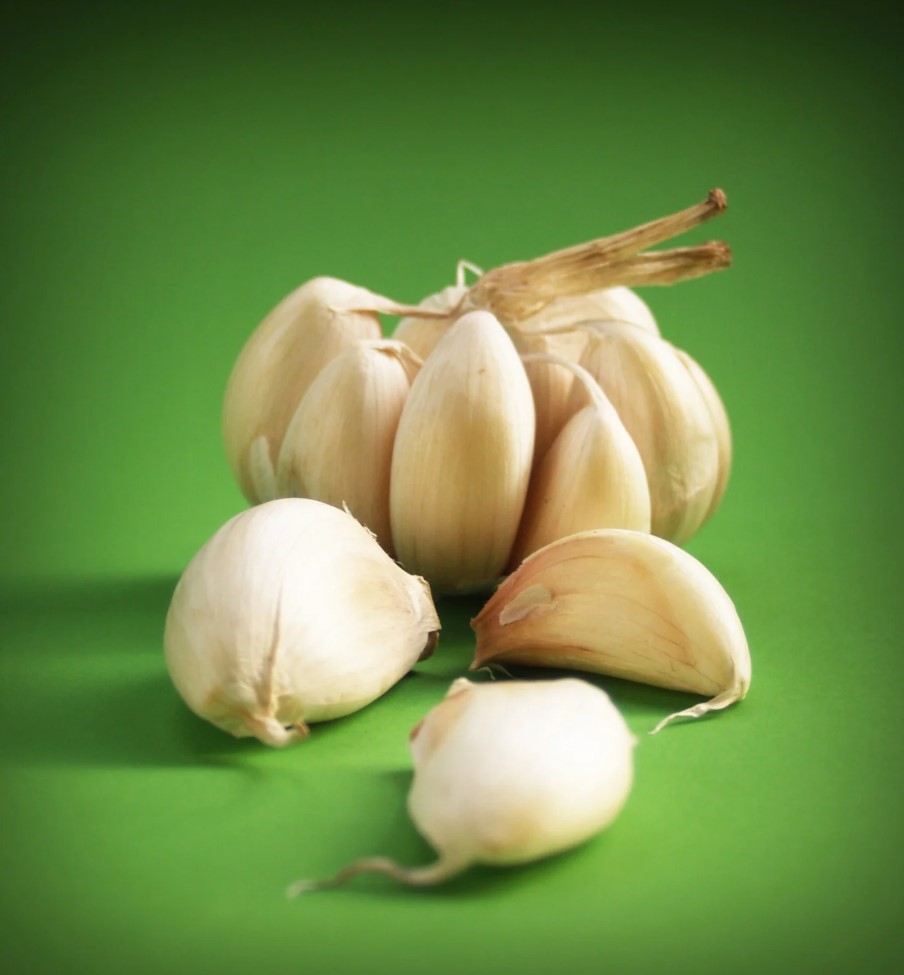
Garlic’s Medicinal Properties: Boosting İmmunity
If you’re looking for an all-natural ingredient to help boost your immunity, look no further than garlic. Garlic has been used for centuries in traditional medicine to treat a variety of ailments, from boosting immunity to fighting off infections. Keep reading to learn more about how garlic can help boost your overall health and wellbeing.
Garlic contains compounds that have been shown to boost the immune system, including allicin, which has potent antimicrobial properties. These compounds have been found to help fight off bacterial, viral, and fungal infections, making garlic a great choice for anyone who wants to boost their immunity naturally.
- Garlic can also help reduce inflammation throughout the body, which has been linked to a variety of chronic health problems, including heart disease, arthritis, and diabetes.
- In addition to its immune-boosting properties, garlic has also been found to have anti-cancer effects. Some studies have suggested that garlic may help reduce the risk of certain types of cancer, including colon, stomach, and breast cancer.
- If you’re looking to add more garlic to your diet, there are plenty of delicious options. Try roasting garlic and spreading it on bread, or adding it to soups, stews, and stir-fries for a burst of flavor.
| Garlic’s Medicinal Properties: | Boosting İmmunity |
|---|---|
| Nutrients found in garlic: | Vitamin C, vitamin B6, manganese, selenium, calcium, and potassium |
| Garlic’s immune-boosting compounds: | Allicin, diallyl disulfide, and s-allyl cysteine |
| Benefits of garlic for heart health: | Reducing blood pressure, lowering cholesterol levels, and improving circulation |
In conclusion, garlic is a powerful natural ingredient that can help boost your immunity and overall health. Its potent anti-microbial and anti-inflammatory properties make it a great choice for anyone looking to support their immune system, while its anti-cancer effects and benefits for heart health make it a valuable addition to any healthy diet. So why not add some garlic to your next meal and start reaping the benefits today?
Garlic’s Benefits For Heart Health: Reducing Blood Pressure
Garlic is a highly nutritious and flavorful herb that has been recognized by many cultures for its medicinal properties. Among its many health benefits, garlic has been found to be effective in reducing blood pressure and promoting heart health. Studies have shown that daily consumption of garlic can help to lower blood pressure in individuals with hypertension, as well as reduce cholesterol levels and prevent the formation of blood clots.
- Garlic and Hypertension: Hypertension, or high blood pressure, is a common condition that affects millions of people worldwide. Garlic has been found to be highly effective in reducing blood pressure, especially in individuals with hypertension. This is due to the presence of a compound called allicin, which relaxes the blood vessels and promotes better blood flow throughout the body.
- Garlic and Cholesterol: High cholesterol levels are a major risk factor for heart disease, stroke, and other cardiovascular conditions. Garlic has been found to be effective in reducing cholesterol levels, due to its ability to inhibit the production of cholesterol in the liver. Studies have shown that regular garlic consumption can lower total cholesterol levels by up to 10%.
- Garlic and Blood Clots: Garlic has been found to be effective in preventing the formation of blood clots, which can lead to heart attacks and strokes. This is due to the presence of compounds called ajoene and adenosine, which inhibit the clumping of blood platelets and prevent the formation of clots in the blood vessels.
Overall, garlic is an incredibly beneficial herb that provides many health benefits, especially for heart health. Regular consumption of garlic can help to lower blood pressure, reduce cholesterol levels, prevent blood clots, and promote better overall heart health. Whether consumed raw, cooked, or in supplement form, garlic is a powerful herb that should be included in any heart-healthy diet.
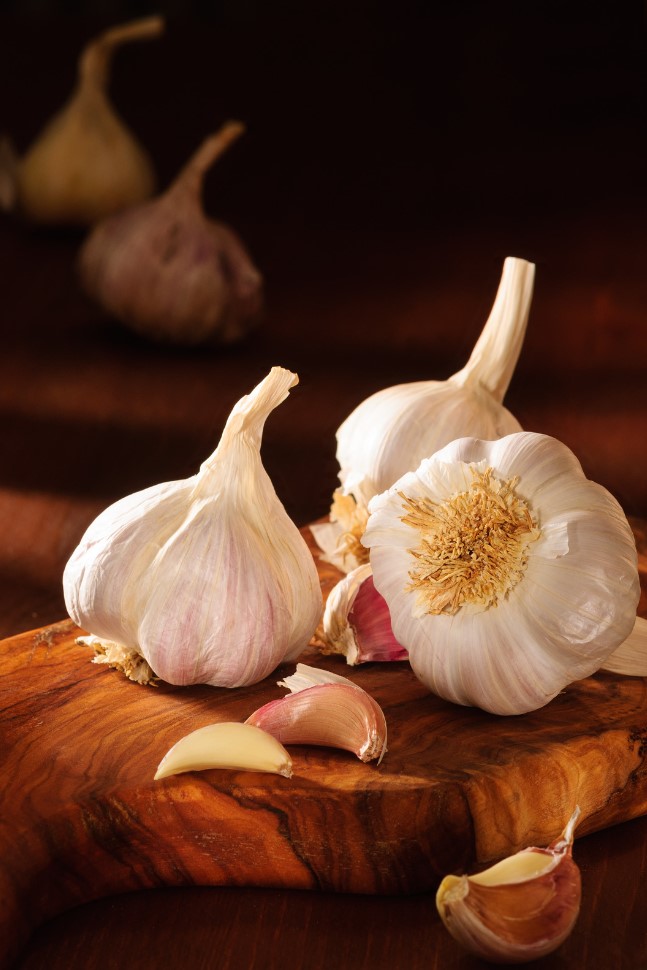
Anticancer Effects Of Garlic: Fighting Against Cancer Cells
Garlic has been renowned for its powerful medicinal properties since ancient times. Its unique flavor and numerous health benefits make garlic a staple ingredient in kitchens around the world. Besides being delicious, garlic is also an excellent natural remedy for various illnesses. In particular, garlic has emerged as a potential solution to one of the most deadly diseases we face today – cancer. Studies have shown that garlic consumption can help in the fight against cancer cells.
Garlic and its anti-cancer properties
Garlic contains bioactive compounds like allicin, alliin, and flavonoids that have been proven useful in the prevention and treatment of cancer. According to research, these compounds induce apoptosis, which is the programmed cell death of cancerous cells. Additionally, garlic has antioxidant properties that combat free radicals that contribute to cancer cell growth. Garlic also inhibits the formation of blood vessels that feed cancer cells leading to their death.
- Garlic contains sulphur compounds, which protect against cancer by helping to eliminate carcinogens and inhibit tumor growth.
- Garlic also helps to regulate cell proliferation and differentiation, which play a crucial role in fighting cancer.
Moreover, garlic has been shown to be effective in inhibiting the growth of various types of cancer cells such as breast, colon, stomach, and prostate cancer. Researchers believe that consuming raw garlic on a regular basis could decrease the risk of developing cancer.
| Garlic | Cancer Fighting Agents |
|---|---|
| Saponins | Inhibit the growth and spread of cancer cells |
| Sulfur compounds | Block carcinogen formation and kill cancer cells |
| Flavonoids | Inhibit tumor growth |
How to consume garlic for its anticancer effects
The best way to consume garlic is by eating it raw, as it preserves the bioactive compounds that are responsible for its health benefits. Crushing or chopping raw garlic will also increase the release of allicin, which contributes to the anti-cancer properties of garlic. Consuming one to two cloves of garlic every day can help prevent cancer and maintain overall health.
Conclusion
The anti-cancer properties of garlic have been recognized as a promising avenue for cancer treatment and prevention. Garlic’s ability to induce apoptosis and inhibit the growth of cancer cells makes it an excellent natural remedy for reducing the risk of cancer. By incorporating garlic into your diet, you can protect your health and maintain overall wellbeing.
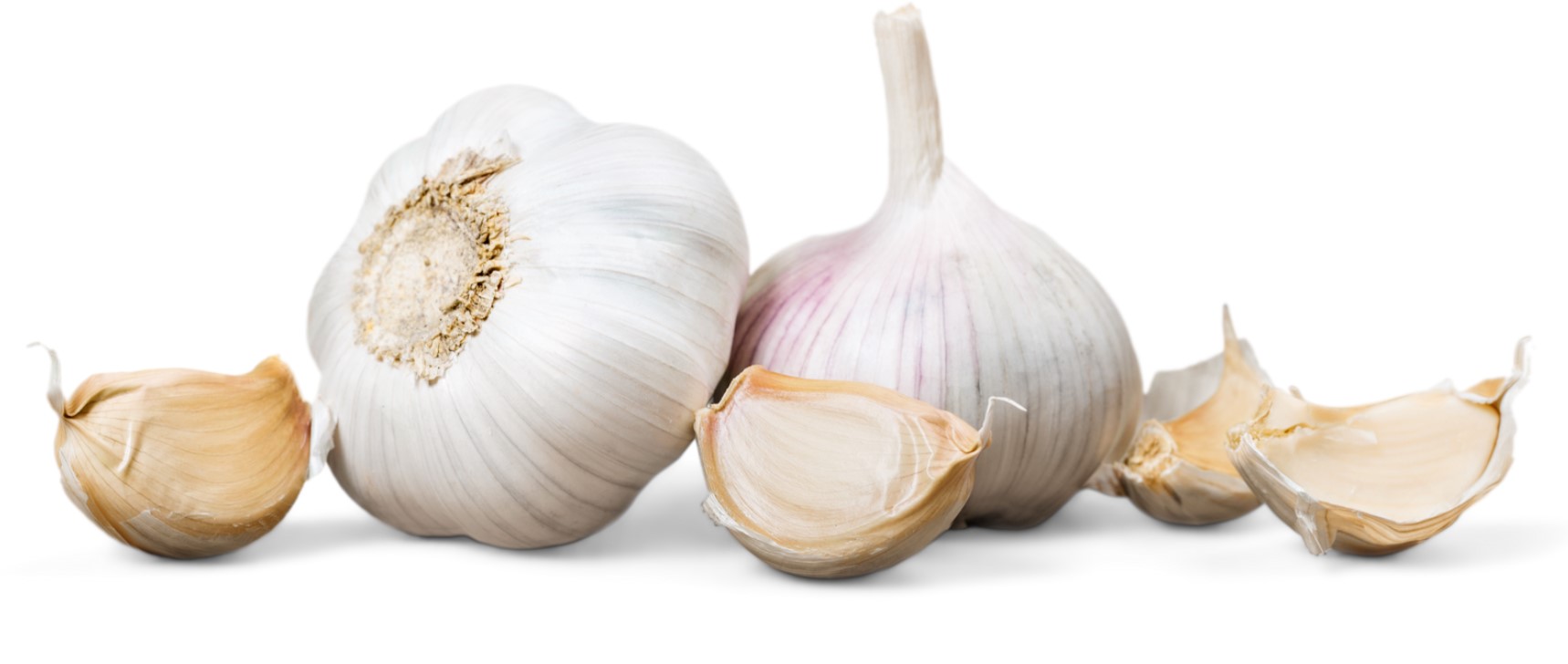
Garlic As An Antibiotic: Treating Bacterial İnfections
Garlic has been used for centuries as a natural remedy for various health conditions. One of its most notable uses is as an antibiotic to treat bacterial infections. Garlic has naturally occurring compounds that have antibacterial properties, making it effective in fighting off infections. Studies have shown that garlic can be just as effective as pharmaceutical antibiotics, without the negative side effects that they can bring.
- Allicin, a compound found in garlic, is a potent antibacterial agent that can kill off harmful bacteria in the body.
- The antibacterial properties of garlic can help in preventing and treating infections such as pneumonia, strep throat, and even food poisoning.
Garlic’s ability to act as an antibiotic is not just limited to fighting off infections in the body. It can also be effective in treating external bacterial infections such as acne. The anti-inflammatory properties of garlic can help in reducing swelling and redness associated with acne, while its antibacterial properties can help in killing off the bacteria causing the acne.
| Benefits of using garlic as an antibiotic: |
|---|
| 1. Natural: Garlic is a natural ingredient that does not contain harmful chemicals that can damage the body. |
| 2. Cost-effective: Garlic is much cheaper than pharmaceutical antibiotics, making it a more affordable option for those on a budget. |
| 3. Antibacterial: Garlic has powerful antibacterial properties that can eliminate harmful bacteria in the body. |
In conclusion, garlic’s ability to act as an antibiotic makes it a valuable natural remedy for treating bacterial infections. Its antibacterial properties, coupled with its natural and cost-effective nature, make it a great alternative to pharmaceutical antibiotics. However, it is essential to note that garlic should not be used as a substitute for medical treatment, and one should always consult a healthcare professional before using garlic for medicinal purposes.
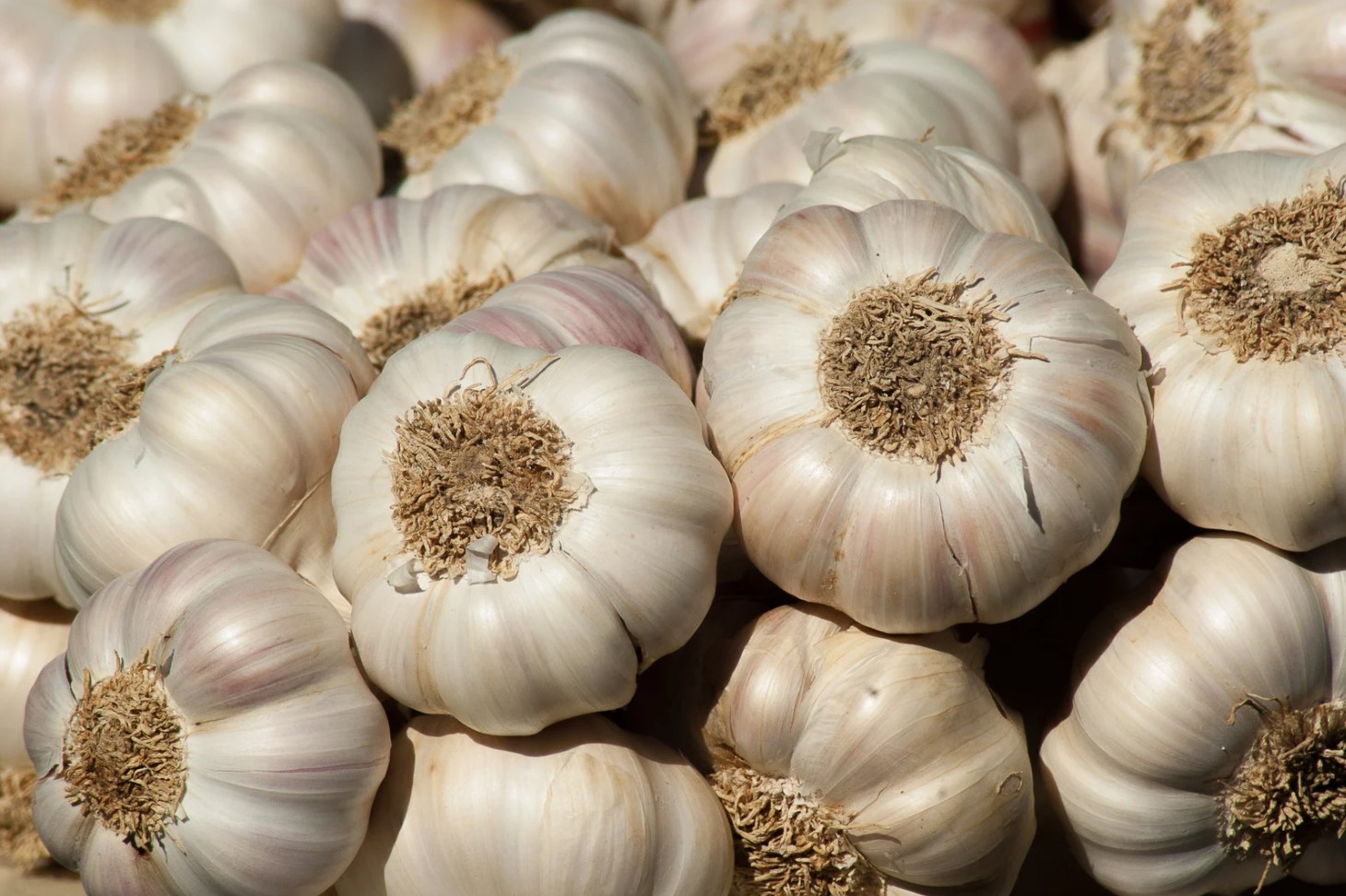
Garlic’s İmpact On Brain Health: Boosting Cognitive Function
Garlic is a versatile herb that is well-known for its delicious taste and numerous health benefits. Among the many advantages of consuming garlic, boosting cognitive function is one that is often overlooked. However, numerous studies have shown that regular garlic consumption may have a significant impact on brain health and improve cognitive function.
One of the main compounds in garlic that is responsible for its brain-boosting benefits is allicin. Allicin is a sulfur compound that is released when garlic is crushed, chopped, or chewed. Studies have shown that allicin may help improve blood flow to the brain, which can help to promote overall cognitive function, including memory, learning, and attention span.
- In addition to its ability to enhance cognitive function, garlic has also been shown to have other beneficial effects on brain health.
- Garlic contains powerful antioxidants that can help to protect the brain from oxidative damage caused by free radicals.
- Garlic may also have neuroprotective effects, which means it may help to prevent or slow down the progression of certain brain disorders such as Alzheimer’s or Parkinson’s disease.
In traditional medicine, garlic has been used for centuries to treat a variety of ailments, including neurological conditions. Modern research has confirmed that garlic may indeed have a positive impact on brain health, making it a valuable addition to any diet.
| Ways to consume garlic for maximum brain benefits: | Benefits: |
|---|---|
| Crush or chop garlic and let it sit for a few minutes before cooking, to produce allicin | Improves blood flow to the brain, enhancing cognitive function |
| Add garlic to soups, stews, or roasted vegetables, for a delicious and healthy dose of flavor | Provides potent antioxidants for brain health |
| Take garlic supplements, especially aged garlic extract supplements, which have been shown to have a positive impact on neurological function | May have neuroprotective effects, preventing or slowing down the progression of neurological diseases |
Overall, garlic is a versatile herb that provides numerous health benefits, including boosting cognitive function and promoting brain health. Whether you choose to consume garlic as a supplement or incorporate it into your cooking, adding garlic to your diet can be an easy and delicious way to improve your overall health and wellbeing.
Garlic’s Effectiveness Against Cold And Flu: Relieving Symptoms
During cold and flu season, most of us find ourselves caught up in the cycle of sickness. We try to avoid getting sick by washing our hands regularly, eating healthy foods, and getting enough sleep. Yet, despite our best efforts, we often find ourselves feeling miserable as we battle the cold or flu. Fortunately, there’s a natural remedy that can help: garlic.
Garlic has been used for centuries as a natural remedy for a variety of ailments. It is particularly effective against colds and the flu due to its antiviral and antibacterial properties. The sulfur-containing compounds in garlic, such as allicin, are responsible for its many health benefits. These compounds help to boost the immune system and fight off infections.
- Garlic can be added to soups and stews
- Garlic can be roasted and mashed into a paste
- Garlic can be made into a tea
There are many ways to consume garlic to help relieve cold and flu symptoms. One of the easiest ways is to add garlic to your meals. Garlic can be added to soups and stews, roasted and mashed into a paste, or made into a tea. Another popular way to consume garlic is by taking garlic supplements. However, it’s important to speak with your healthcare provider before taking any supplements.
| Benefits of Garlic for Cold and Flu | How to Use Garlic |
|---|---|
| Boosts the immune system | Add it to soups or stews |
| Fights bacterial and viral infections | Roast and mash into a paste |
| Reduces inflammation in the body | Make it into a tea |
Garlic can also be used to help relieve specific cold and flu symptoms. For example, garlic can help to clear nasal passages and relieve congestion. As an expectorant, it helps to break up phlegm and mucus, making it easier to cough it up. Garlic is also effective against sore throats and coughs. Drinking garlic tea or gargling with garlic water can help to soothe a sore throat.
In conclusion, garlic is a natural remedy that can be very effective against cold and flu symptoms. Its antiviral, antibacterial, and anti-inflammatory properties make it an excellent choice for boosting the immune system and fighting off infections. Whether you add garlic to your meals or take supplements, it’s important to incorporate this healthy food into your diet during cold and flu season.
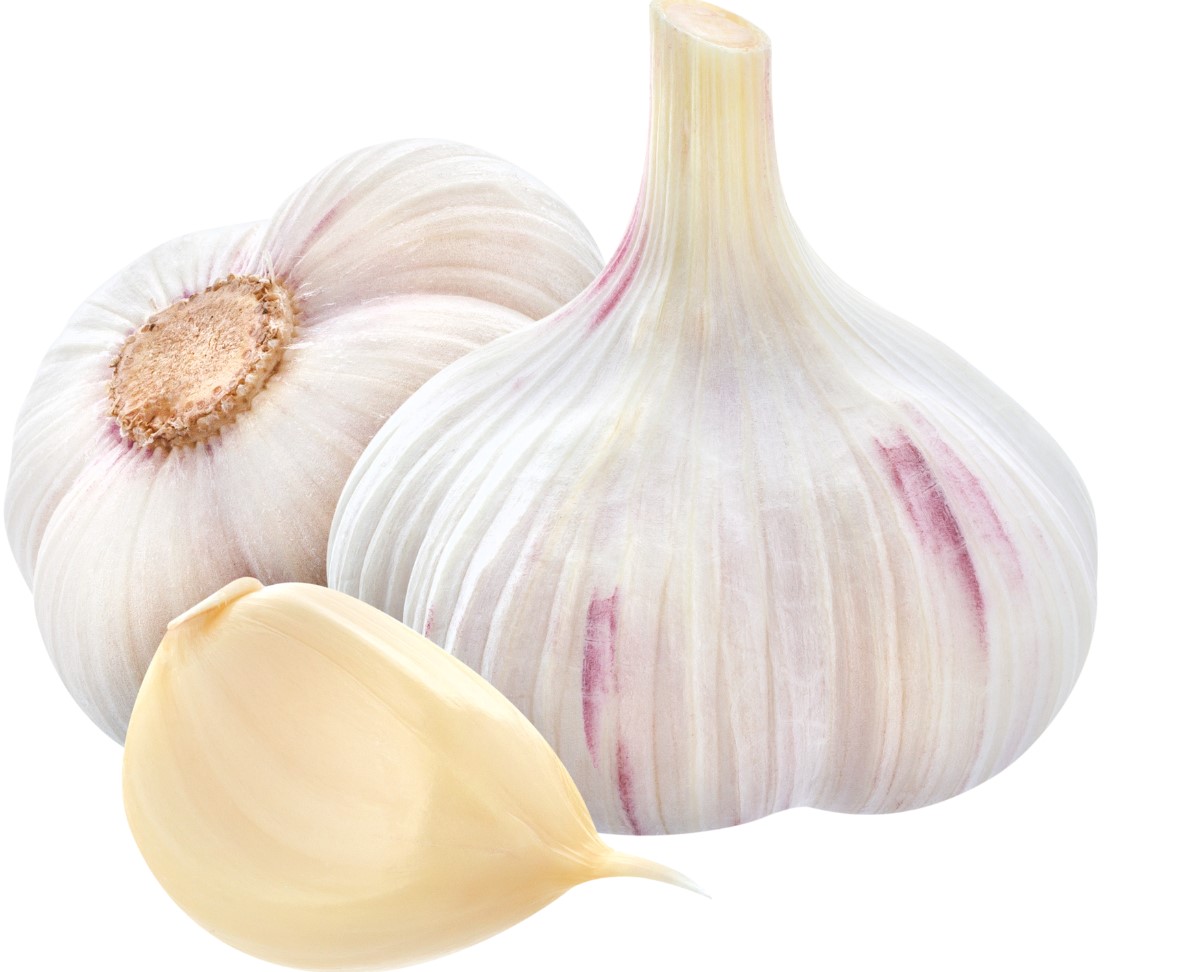
Garlic İn Traditional Medicine: Historical Use İn Ancient Cultures
Garlic has been used in traditional medicine for thousands of years, with its consumption dating back to ancient civilizations like the Egyptians, Greeks, and Romans. These cultures believed in the numerous health benefits of garlic and used it to treat a variety of illnesses.
Ancient Egyptians were known to consume garlic to improve their physical strength and endurance. They also believed that it had medicinal properties that could treat various skin infections and used it to keep their bodies healthy and free from disease.
- Greeks also believed in the therapeutic properties of garlic and used it to treat a variety of ailments, including respiratory and digestive issues.
- They also used garlic to boost their athletes’ performance and believed that it could increase their strength and endurance.
Romans considered garlic to be a powerful antibiotic and used it as a remedy for various infections. They also believed that garlic could help with digestion and prevent illnesses caused by overeating.
| Ancient Civilizations | Garlic’s Uses |
|---|---|
| Egyptians | Improve physical strength and treat skin infections |
| Greeks | Treat respiratory and digestive issues, boost athletic performance |
| Romans | Fight infections and aid in digestion |
Garlic was also an important ingredient in traditional Chinese medicine, where it was used to treat a range of ailments, from digestive issues to respiratory problems. Its use in Ayurvedic medicine in India dates back to approximately 5,000 years ago, where it was used to treat digestive and respiratory ailments and considered an important medicinal herb.
Garlic has stood the test of time and continues to be used for its various health benefits. It is important to remember, however, that while garlic may have beneficial properties, it is not a cure-all and should not be used as a substitute for modern medicine.
In conclusion, garlic has a rich history in traditional medicine, with ancient civilizations using it to treat a variety of illnesses. Today, garlic continues to be used in complementary medicine for its numerous health benefits.
Garlic İn Cooking: Enhancing Flavor And Nutrition
Garlic is a versatile ingredient that can be found in almost every kitchen around the world. It’s known for its distinctive taste and strong aroma, which can add depth and complexity to a wide range of dishes. However, garlic is more than just a flavoring agent; it’s also an excellent source of essential nutrients that are vital for maintaining good health.
When it comes to cooking with garlic, there are many different ways to use it. One popular method is to sauté chopped garlic in olive oil, which can be used as a base for many different sauces and dressings. Garlic can also be roasted, boiled or grilled to give it a milder flavor that complements dishes such as roasted meat or vegetables.
- Garlic has been shown to have a number of health benefits, including reducing the risk of heart disease and certain types of cancer.
- Garlic is rich in vitamins and minerals, including vitamin C, calcium, and potassium.
In addition to its nutritional benefits, garlic can also be used to add flavor to a variety of different dishes. For example, garlic is often used to season pasta dishes, stir-fries, and soups. It can also be used as a topping for pizza or added to dressings and marinades.
| Garlic Cauliflower Rice | Ingredients |
|---|---|
| 1 head cauliflower, grated | 1/4 cup olive oil |
| 4 cloves garlic, minced | 1/4 cup fresh parsley, chopped |
| 1/2 tsp salt | 1/4 tsp black pepper |
| 1 tbsp lemon juice |
This recipe is a great example of how garlic can be used to enhance the flavor and nutrition of a dish. Garlic is sautéed with cauliflower rice, which is a healthy substitute for traditional rice, to create a delicious and satisfying side dish that’s both nutritious and delicious.
In conclusion, garlic is an incredibly versatile ingredient that can be used in a wide range of dishes to add flavor and nutrition. Whether you’re sautéing garlic to make a sauce or seasoning a soup with minced garlic, there are many different ways to incorporate this ingredient into your cooking. So why not try experimenting with garlic in your own kitchen and see what delicious dishes you can create?
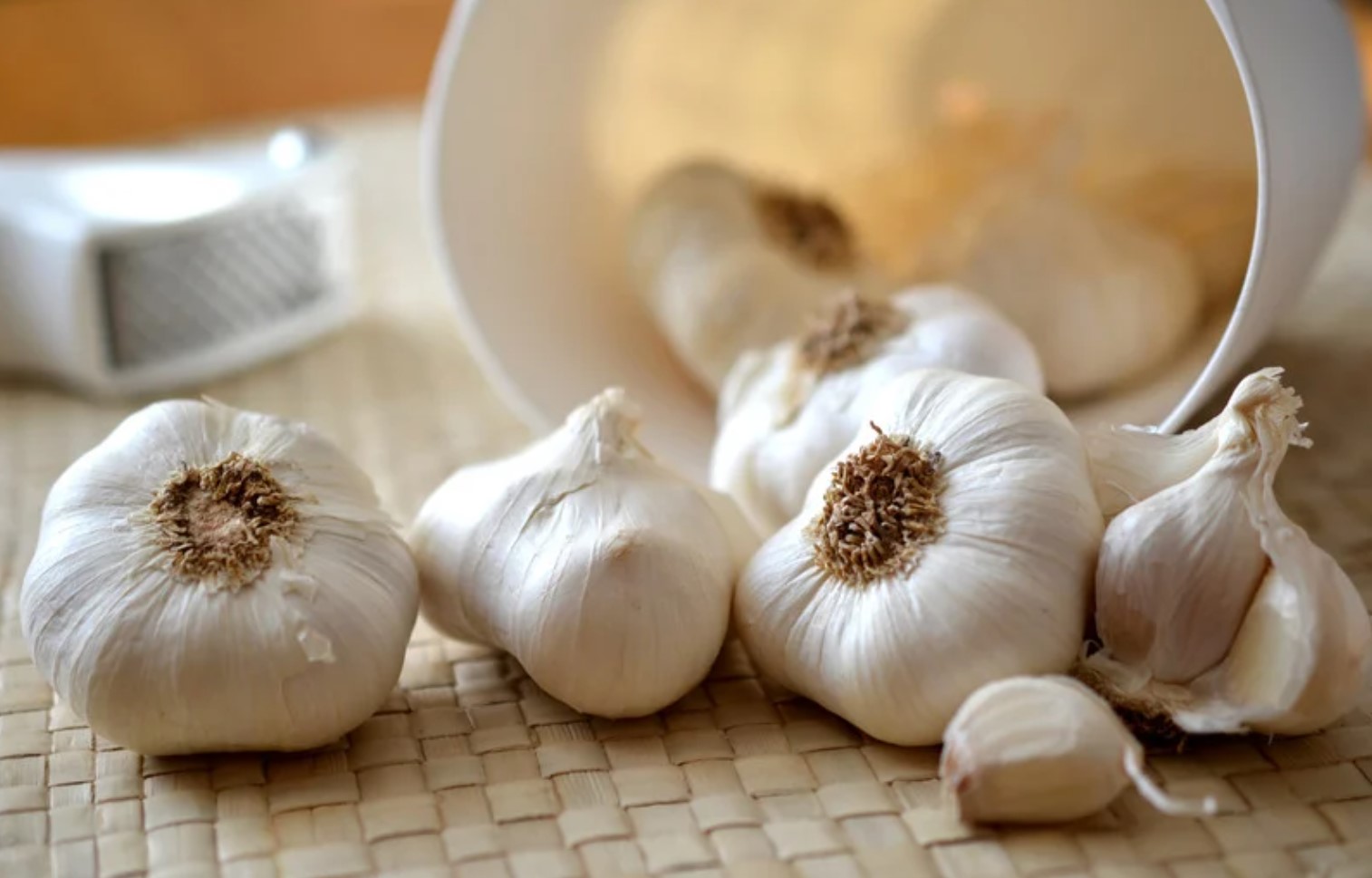
Garlic’s İmpact On Skin Health: Treating Acne And Other Skin İssues
Garlic has been used for centuries to treat various ailments, including skin issues such as acne. This herb is not only beneficial for your taste buds but also for your skin. Garlic has several properties that make it a potent remedy for various skin conditions.
Nutrients and antioxidants present in garlic: Garlic contains several essential nutrients and antioxidants that are good for your skin. It is rich in vitamin C, B6, selenium, and manganese, which are all beneficial for skin health. Garlic also contains antioxidants that help protect your skin from damage caused by free radicals, which can cause premature aging and other skin issues.
- Allicin: This compound is responsible for the strong odor of garlic and also has antifungal and antibacterial properties that can help combat acne-causing bacteria.
- Sulfur compounds: These compounds are responsible for garlic’s anti-inflammatory properties and can help reduce redness and swelling caused by acne.
How garlic can treat acne: Acne is caused by bacteria, excess oil production, and inflammation. Garlic can help combat all of these factors and reduce acne.
- Antibacterial properties: Garlic has strong antibacterial properties that can help kill acne-causing bacteria. To use garlic as a treatment for acne, crush a few cloves of garlic and apply the paste directly to your pimples. Leave it on for a few minutes before rinsing it off with water.
- Anti-inflammatory properties: Garlic has anti-inflammatory properties that can help reduce redness, swelling, and pain associated with acne. You can crush a few cloves of garlic and mix the paste with honey to create a face mask. Leave the mask on for 10-15 minutes before rinsing it off with warm water.
- Regulate oil production: Garlic can help regulate oil production in your skin, which can prevent clogged pores and acne. Consuming garlic regularly can help improve overall skin health and reduce acne outbreaks.
Garlic is a versatile herb that can be used in many ways to treat various skin issues such as acne. However, it is important to note that garlic can cause skin irritation in some people. If you experience any redness or itching after using garlic, stop using it and consult with your doctor.
Conclusion: Garlic is a natural and effective way to treat various skin issues such as acne. The nutrients and antioxidants present in garlic, along with its antibacterial and anti-inflammatory properties, make it a potent remedy for acne. However, it is important to use garlic with caution and discontinue if you experience any adverse effects.
Garlic’s Potential To Reduce İnflammation: Relieving Pain And Swelling
Garlic is a versatile and popular ingredient in cooking, known for its intense flavor and aroma. But garlic also boasts several health benefits, including its potential to reduce inflammation and relieve pain and swelling in the body.
Studies have shown that garlic contains compounds that have anti-inflammatory effects, which can help reduce inflammation and swelling. One of these compounds, allicin, has been found to have powerful anti-inflammatory properties and may be responsible for many of garlic’s health benefits.
- Inflammation is the body’s natural response to injury or infection, but chronic inflammation can lead to a number of health problems, including arthritis, heart disease, and cancer. By reducing inflammation, garlic may help prevent or manage these conditions.
- Garlic may also help relieve pain and swelling associated with conditions like osteoarthritis and rheumatoid arthritis. One study found that garlic extract reduced pain and improved mobility in people with osteoarthritis of the knee.
In addition to its anti-inflammatory effects, garlic has also been found to have antioxidant properties, which can help protect against damage from free radicals and may help prevent chronic diseases.
| Ways to incorporate garlic into your diet: |
|---|
| 1. Raw garlic: Eating raw garlic may provide the most health benefits, but be aware that it may cause digestive discomfort and bad breath. |
| 2. Cooked garlic: Cooking garlic can help reduce its pungent flavor, making it more palatable. Roasted garlic makes a delicious and healthy addition to dishes like soups, stews, and roasted vegetables. |
| 3. Garlic supplements: Garlic supplements are available in capsule, tablet, or powder form and can be a convenient way to get the health benefits of garlic without the strong taste and odor. |
Incorporating garlic into your diet is a simple and delicious way to promote overall health and wellbeing. Whether you prefer it raw or cooked, garlic’s potential to reduce inflammation, relieve pain and swelling, and protect against chronic diseases makes it an important part of any healthy diet.
Garlic’s İmpact On Digestion: Aiding İn Healthy Bowel Movements
Garlic is a versatile and incredibly beneficial food that has been used for centuries in traditional medicine. One of its most significant impacts appears to be on digestion. Garlic helps regulate the digestive system and promote healthy bowel movements.
Garlic is rich in sulfur-containing compounds that aid in the production of digestive enzymes. These enzymes assist in breaking down food into smaller particles and assist nutrients in readily absorbing into the bloodstream. Garlic’s various sulfur components promote the growth of gut-friendly bacteria that live in the digestive tract, thereby contributing to better digestion.
- Garlic helps to prevent bloating and gas, by improving digestion.
- These sulfur compounds are important for maintaining healthy gut function, helping to reduce the symptoms of gas, upset stomach, and diarrhea.
Furthermore, the anti-inflammatory properties of garlic can help alleviate symptoms of inflammatory bowel diseases like IBD and ulcerative colitis. Garlic contains antioxidants that reduce inflammation and help protect against oxidative stress, which can cause damage to the digestive organs. Eating garlic may also decrease the risk of developing stomach and colon cancers, which are more likely in people who suffer from digestive disorders.
| Health Benefits of Garlic on Digestion | How Garlic Helps |
|---|---|
| Relieve Bloating and Gas | Sulfur compounds break down food better, supporting digestive enzymes and regulating gut bacteria. |
| Reduce Inflammatory Bowel Diseases | Garlic’s anti-inflammatory effects can help reduce symptoms of ulcerative colitis and inflammatory bowel disease. |
| Lower Risk of Developing Colon Cancer | Garlic helps regulate bowel movements and prevent constipation, reducing the risk of colon cancer. |
If you want to get the benefit of garlic, include it in your diet for better digestion. Adding garlic to cooked food is a delicious and healthy way to enhance your meals’ flavor and nutrition. Fresh garlic is the best choice when it comes to getting the maximum benefits from garlic.
Overall, it can be concluded that garlic is a natural remedy that can help improve your digestion, relieve digestive disorders, and contribute to overall well-being. While adding garlic to your diet, always remember not to overuse it, as excessive consumption may lead to unpleasant side effects.
The Best Ways To Consume Garlic: How To Get The Most Benefits
Garlic is one of the most commonly used ingredients in cooking, known for its unique flavor and aroma. But did you know that garlic also has numerous health benefits? It is packed with essential nutrients and is known for its immune-boosting and antibacterial properties. In this blog post, we will be discussing the best ways to consume garlic for maximum benefit.
Raw Garlic: Consuming raw garlic is an effective way to reap its health benefits. Allicin, a compound found in garlic, is responsible for its medicinal properties. However, cooking garlic can destroy this compound. Eating one or two raw garlic cloves per day on an empty stomach can help boost immunity and lower blood pressure.
- Raw garlic can be added to salads or used to make garlic toast
- Chewing on a raw garlic clove can help relieve a sore throat
- Raw garlic can also be added to dips and sauces for added flavor and nutrition
Cooked Garlic: While cooking garlic can destroy allicin, it does not mean that you should completely give up on consuming cooked garlic. Cooking garlic can actually enhance its antioxidant properties as well as make it easier to digest. Here are some ways to consume cooked garlic:
| Methods | Benefits |
|---|---|
| Roasting | Enhances the natural sweetness of garlic |
| Sauteing | Adds flavor to dishes such as pastas, stir-fry and soups |
| Baking | Can be used to make garlic bread or added to savory baked goods |
Garlic Supplements: For those who are unable to consume raw or cooked garlic, garlic supplements can be a great alternative. These supplements come in various forms such as capsules, tablets, and oils. It is important to note that these supplements should not be used as a substitute for a healthy diet.
- Garlic supplements should be consumed only after consulting a healthcare provider
- Choosing a supplement with a high allicin content can provide maximum benefit
- Garlic oil supplements can be applied topically to treat skin problems like acne
In conclusion, garlic is a versatile ingredient that can be consumed in various forms for maximum benefit. Whether you prefer consuming raw garlic, cooked garlic, or garlic supplements, including garlic in your diet can help improve your overall health and wellbeing.
Conclusion: Garlic’s İmportance For Overall Health And Wellbeing
Garlic’s benefits go beyond just adding flavor to dishes. As we have seen throughout this blog post, garlic has numerous medicinal properties and nutritional value that makes it an important addition to our diets. Whether it is boosting the immune system, reducing blood pressure, fighting cancer cells, treating bacterial infections, or improving brain function, garlic can have a significant impact on our overall health and wellbeing.
One of the best things about garlic is its versatility in consumption. You can add it to practically any dish, either roasted, sautéed, or raw. Even just munching on a clove of raw garlic can provide numerous benefits. It is recommended to consume about 1-2 cloves of garlic per day to reap its benefits.
- For those who do not prefer the taste or smell of garlic, garlic supplements are available as an alternative. However, it is always best to consult a healthcare provider before adding any new supplement to your diet.
- Garlic oil can also be used topically to treat skin issues such as acne and warts. However, it is important to dilute garlic oil before applying it to the skin to prevent skin irritation.
- Garlic can also have an impact on our digestion, aiding in healthy bowel movements. However, consuming too much garlic can also lead to gastrointestinal issues such as gas and bloating.
Overall, garlic has proven to be a powerful and beneficial ingredient for our health. From ancient medicinal uses to modern scientific discoveries, garlic’s importance cannot be denied. Adding it to our diets in various forms is a simple and effective way to boost our overall health and wellbeing.